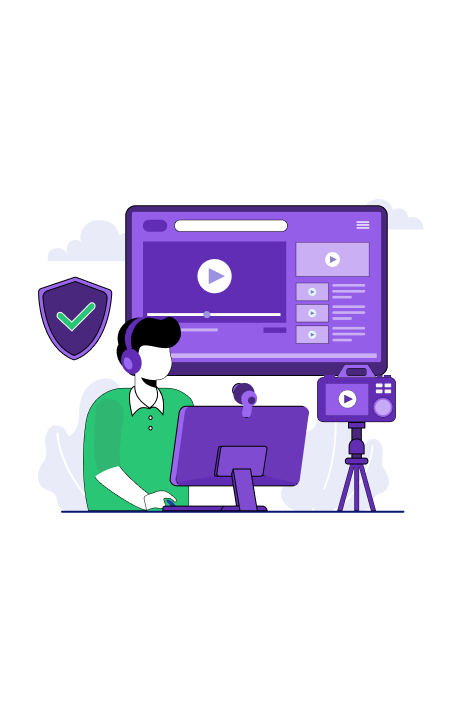
Protecting your online identity as a content creator
As a content creator, your online identity is your brand and reputation. It is essential to protect it from malicious actors who may use your personal information for fraudulent activities.
This guide will list all the precautions and proactive steps you can take to protect your online identity so that your brand and reputation remain intact and continue to grow. Let us begin.
Tips on how to protect your digital identity
1. Create a separate email address for your content creation
Creating a separate email address for your content creation can be beneficial in terms of organization and privacy. It allows you to keep your professional and personal correspondence separate and makes it easier to manage your contacts and promotional emails.
Using a separate email address can also protect your personal information and reduce the risk of spam or unwanted emails. It also helps you maintain a professional image and makes it easier for others to contact you specifically for your content creation work.
2. Use strong passwords and two-factor authentication
You have two tools to protect your credentials – passwords and 2FA.
Strong passwords should include a mix of letters, numbers, and special characters, and should not be easily guessed or cracked.
Two-factor authentication adds an extra layer of security by requiring a second form of verification, such as a code sent to your phone, in addition to your password.
By using both, it helps to prevent unauthorized access to your accounts and keeps your personal information and content secure.
It’s a simple yet effective way to protect your online identity and safeguard your content.
3. Utilize privacy settings on social media accounts
Using the privacy settings on social media accounts is important to protect your personal information and content.
These settings allow you to control who can see your posts, messages and profile information.
Review your settings regularly and make adjustments as needed to ensure that your personal information is shared with only those you trust.
4. Regularly review websites that have access to your personal information
Over time, you may have granted access to apps or websites that you no longer use or trust, it’s important to remove their access if that’s the case.
If a site or app experiences a data breach, your personal information may be compromised.
In that case, regularly reviewing the websites that have access to your personal information can help you quickly identify and address any potential security risks.
5. Think twice before sharing sensitive information or images online
As a content creator, you have a responsibility.
There’s a need to be considerate. Sharing sensitive information or images online should be avoided because once something is posted on the internet, it can be difficult, if not impossible, to remove it entirely. This means that sensitive information or images can be accessed, shared, and potentially misused by others. It also puts you at risk of identity theft, harassment, or other forms of abuse.
6. Consider using a VPN to protect your identity
VPNs encrypt your internet connection, making it difficult for hackers and other malicious actors to access your personal information or intercept your online activities.
They also help to protect your location and IP address, making it harder for others to track your online movements. This can be especially important for content creators who may be working on sensitive or confidential projects and want to keep their identity and location private. Using a VPN can also help content creators bypass geo-restrictions and access blocked content.
Conclusion
Protecting your online identity is crucial for content creators, as it helps to safeguard your personal information, reputation and brand. By taking simple steps such as using strong passwords and two-factor authentication, reviewing which websites have access to your personal information, utilizing privacy settings on social media accounts, and using VPNs, content creators can greatly reduce the risk of their personal information being compromised. It’s important to be mindful of what you share online and think twice before sharing sensitive information or images. By taking the time to protect your online identity, you can ensure that your brand and reputation remains intact, and your content remains private and secure.